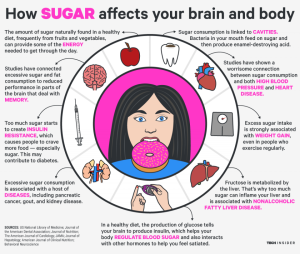
A balanced diet plays a crucial role in maintaining good health and wellbeing. Essential vitamins and minerals are vital for the proper functioning of our bodies. They are responsible for a wide range of bodily processes such as growth, development, metabolism, and maintenance of healthy tissues. While a variety of nutrients are required for optimal health, in this article we will focus on some of the key vitamins and minerals that should be included in a well-rounded diet.
Vitamin A
Vitamin A is essential for maintaining healthy vision, promoting proper immune function, and supporting cell growth. It is found in sources such as carrots, sweet potatoes, leafy greens, and liver. Incorporating these foods into your diet can help prevent night blindness, boost immune system activity, and support overall eye health.
Vitamin C
Vitamin C is known for its immune-boosting properties and its role in collagen production, which is crucial for healthy skin, cartilage, and blood vessels. Citrus fruits, strawberries, bell peppers, and broccoli are excellent sources of vitamin C. Regular intake of this vitamin can help strengthen the immune system, promote wound healing, and maintain healthy skin.
Vitamin D
Vitamin D is important for maintaining strong and healthy bones. It aids in the absorption of calcium and phosphorus, which are essential minerals for bone health. Our bodies can produce vitamin D when exposed to sunlight, but it can also be found in fatty fish, fortified dairy products, and egg yolks. Adequate vitamin D intake is crucial to prevent conditions such as osteoporosis and rickets.
Calcium
Calcium is not only essential for bone health but also plays a role in muscle function, nerve transmission, and hormone secretion. Dairy products like milk, yogurt, and cheese are rich sources of calcium. Leafy greens, fortified plant-based milk, and fish with edible bones are also good alternatives for those who are lactose intolerant or follow a vegan diet.
Iron
Iron is essential for the production of hemoglobin, a protein in red blood cells that carries oxygen throughout the body. Good sources of iron include red meat, poultry, beans, lentils, spinach, cbd capsules and fortified cereals. Adequate iron intake is important to prevent iron-deficiency anemia, which can cause fatigue, weakness, and impaired immune function.
Potassium
Potassium is a mineral that plays a vital role in maintaining proper heart and muscle function, regulating blood pressure, and balancing electrolyte levels. Bananas are often associated with high potassium content, but other sources include sweet potatoes, avocados, spinach, and white beans. Incorporating potassium-rich foods into your diet can help support cardiovascular health and prevent muscle cramps.
Conclusion
A balanced diet should include a variety of essential vitamins and minerals to ensure optimal health and wellbeing. Vitamins A, C, and D, along with minerals such as calcium, iron, and potassium, are vital for maintaining proper bodily functions. By incorporating a wide range of nutrient-rich foods into your diet, you can promote overall health and reduce the risk of deficiency-related health conditions.

